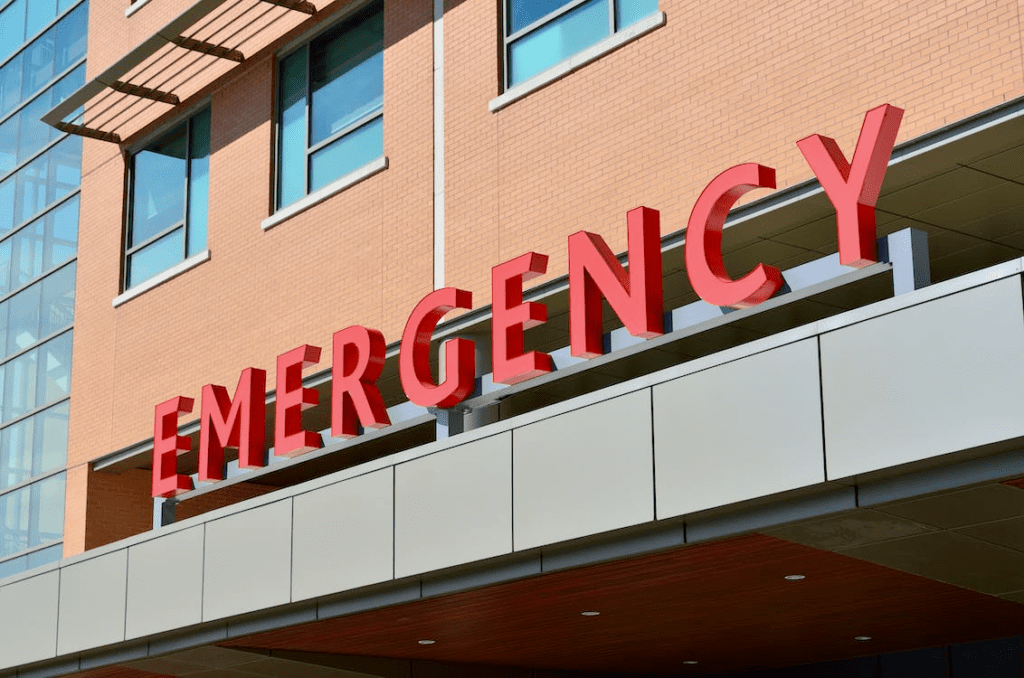Medical emergencies can happen to anyone. When faced with a medical emergency, it is crucial to receive timely and appropriate care. Fortunately, the availability of urgent care centers has revolutionized healthcare by providing convenient and efficient medical services.
In this article, we will share the distinctions between urgent care centers and emergency rooms, shed light on the most common urgent care conditions that call for a trip to the emergency room, explore prevalent reasons for seeking urgent care, and provide valuable tips to enhance your urgent care experience.
What is an Urgent Care Center?
Urgent care centers are valuable medical facilities that specialize in providing immediate medical attention for a wide range of urgent medical conditions. These centers are staffed by trained medical professionals, including physicians, nurses, and technicians, who are well-equipped to handle urgent medical situations. One of the key advantages of urgent care centers is their extended operating hours, often beyond regular office hours, which allows individuals to seek prompt care even during evenings, weekends, and holidays.
These centers serve as an alternative to primary care physicians and emergency rooms for certain conditions. Urgent care centers offer a convenient middle ground, providing comprehensive medical services that bridge the gap between routine primary care and critical emergency care.
Urgent care centers provide a range of medical services, encompassing the diagnosis, treatment, and management of minor illnesses and injuries. These may include common conditions such as cold and flu symptoms, minor infections, minor fractures, minor burns, sprains, and strains. Urgent care centers also provide services like diagnostic tests (such as X-rays and lab work), vaccinations, sports physicals, and minor surgical procedures.
Unlike primary care offices that typically require appointments and emergency rooms that prioritize life-threatening cases, urgent care centers operate on a walk-in basis. This means individuals can seek medical attention without prior appointments, allowing for more immediate care and reducing wait times.

When to Go to Urgent Care?
Urgent care centers are well-suited to address a wide range of non-life-threatening conditions, offering timely and convenient care. Here are some instances where visiting an urgent care center is appropriate:
Minor Injuries
When it comes to minor injuries we all experience from time to time, urgent care centers can be incredibly helpful. These centers are specifically designed to handle a range of minor injuries, including sprains, strains, minor burns, and minor fractures. Although these injuries may not be life-threatening, they can still be quite painful and disruptive to our daily lives.
In both urgent care centers and emergency rooms, you can expect prompt evaluation and treatment for your minor injury. The staff is equipped with the necessary expertise and resources to assess your condition promptly. In certain situations, healthcare providers at both urgent care centers and emergency rooms may utilize X-rays to obtain a clearer understanding of the injury, enabling them to make an accurate diagnosis.
Mild Allergic Reactions
If you experience mild allergic reactions, such as rashes, mild swelling, or itching, urgent care centers can offer evaluation, treatment, and advice on managing your symptoms. At an urgent care center, medical specialists will perform a thorough evaluation of your allergic reaction. The healthcare providers will carefully assess your symptoms, review your medical history, and potentially conduct additional tests if necessary.
Common Illnesses
Urgent care centers are also an excellent choice for common illnesses like cold and flu symptoms, sore throat, sinus infections, earaches, and urinary tract infections. These facilities can provide accurate diagnosis and symptom relief and prescribe medications if necessary.
Minor Fractures and Sprains
If you suspect a minor fracture or sprain, urgent care centers can perform X-rays, diagnose the injury, and provide appropriate treatment, including immobilization or casting.
Fever in Children
When your child has a fever without severe symptoms or complications, urgent care centers can provide evaluation and valuable guidance on managing the fever. However, if the fever is very high, persistent, or accompanied by severe symptoms, it may be necessary to seek emergency care.
Eight Common Reasons to Go to the Emergency Room
While urgent care centers can handle a wide range of medical concerns, some conditions require immediate attention in an emergency room. Here are eight common urgent care conditions that require a visit to the emergency room:
Chest Pain or Severe Heart Palpitations
Severe chest pain or heart palpitations should never be taken lightly, as they can be potential signs of a heart attack or a serious cardiac condition. If you experience intense chest pain or heart palpitations, it is crucial to seek immediate emergency medical care without delay. This ensures prompt evaluation and appropriate interventions, maximizing the chances of a positive outcome.
Severe Abdominal Pain
Intense and persistent abdominal pain may also be a sign of a serious or significant underlying condition, such as appendicitis, pancreatitis, or gastrointestinal obstruction. These conditions require immediate evaluation and treatment in an emergency room.
Difficulty Breathing
Sudden shortness of breath or sudden difficulty in breathing could potentially indicate a severe respiratory problem, including conditions such as a severe asthma attack, pneumonia, or a collapsed lung. In these circumstances, seeking immediate emergency care is important. It is crucial to promptly obtain medical attention in an emergency room, where you can undergo a comprehensive evaluation, receive an accurate diagnosis, and benefit from appropriate interventions tailored to address the underlying respiratory issue, thereby promoting optimal respiratory function.
Head Trauma or Severe Headache
Head injuries or severe headaches accompanied by symptoms like confusion, loss of consciousness, vomiting, or seizures require immediate evaluation in an emergency room to rule out serious conditions such as a concussion, brain hemorrhage, or meningitis.
Suspected Stroke or Stroke Symptoms
If you experience sudden numbness or weakness, a severe headache, confusion, slurred speech, or difficulty walking, it could be indicative of a stroke. Time is valuable in stroke cases, as rapid medical intervention can significantly improve the chances of a positive outcome.
Therefore, it is crucial to prioritize seeking emergency care without delay to receive the specialized evaluation and treatment required for stroke management.
Severe Allergic Reactions (Anaphylaxis)
Anaphylaxis is an extremely severe and potentially life-threatening allergic reaction that can lead to significant difficulties in breathing, swelling, hives, dizziness, or even loss of consciousness.
If you suspect anaphylaxis or experience any of its symptoms, seeking emergency care without delay is crucial to safeguard your well-being and receive the necessary treatments to address this serious allergic reaction.
Deep Cuts or Severe Bleeding
If you sustain a deep cut that won’t stop bleeding even with pressure or if an injury causes severe bleeding, it’s crucial to go to the emergency room for proper evaluation and treatment.
Suicidal Thoughts or Severe Mental Health Crisis
When experiencing a severe mental health crisis, seek emergency psychiatric care without delay. The emergency room is equipped to provide the critical evaluation and support required in such situations.
Trained professionals in the emergency room setting can assess the severity of the crisis, ensure the safety of the individual, and initiate appropriate interventions and referrals for further mental health treatment. Swift action in seeking emergency psychiatric care can potentially save lives and provide the necessary support during these challenging circumstances.
Three of the Most Common Reasons for Urgent Care Visits
While the aforementioned conditions require emergency room care, let’s explore three common reasons individuals visit urgent care centers:
Minor Injuries and Sprains
Urgent care centers are well-equipped to handle minor injuries like sprains, strains, minor burns, or minor fractures. They can provide immediate care, including X-rays and splinting, to ensure proper treatment and recovery.
Common Illnesses and Infections
For ailments such as cold and flu symptoms, sinus infections, earaches, or urinary tract infections, urgent care centers offer prompt diagnosis and treatment, including prescriptions when necessary, to help alleviate symptoms and restore well-being.
Sports Physicals and Vaccinations
In addition to addressing urgent medical needs, many urgent care centers also offer valuable services such as sports physicals and vaccinations. These services cater to the needs of athletes and individuals seeking immunization for various conditions. The convenience of obtaining these services without a prior appointment makes urgent care centers an attractive option.
Tips for Urgent Care Visits
When visiting an urgent care center, it’s important to make the most of your experience. Here’s what you can do to make sure you’ll have a smooth and efficient visit:
- Call ahead or check online for wait times and availability to plan your visit accordingly.
- Bring your identification, insurance information, and a list of medications or allergies.
- Prepare a concise summary of your symptoms and medical history to aid the healthcare provider in diagnosing and treating your condition effectively.
- Follow the healthcare provider’s instructions regarding any follow-up appointments, medications, or further testing.
- Maintain open communication with the healthcare provider, asking any questions or seeking clarification as needed.
Urgent Care Centers Are a Convenient Option for Many Medical Emergencies
Urgent care centers play a vital role in providing timely medical care for certain. However, certain urgent care conditions require immediate attention in an emergency room. By understanding the distinction and recognizing the most common urgent care conditions that necessitate an emergency room visit, you can make informed decisions about seeking the appropriate care for your medical needs.
Remember, if your symptoms are severe, potentially life-threatening, or if you are unsure about the urgency of your condition, it is always practical to seek emergency medical care immediately. For immediate care in Pearland, Texas, and nearby areas, a trusted urgent care center or a free-standing emergency room can be the best option to get immediate, convenient, and professional medical services.
By being knowledgeable about urgent care and emergency room options, you can make informed decisions regarding your healthcare and receive the prompt and appropriate care you need in times of medical urgency.


